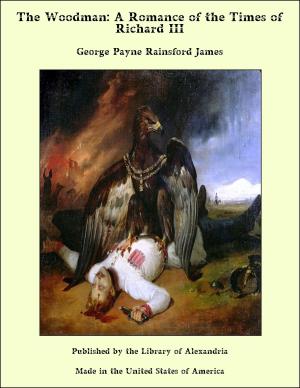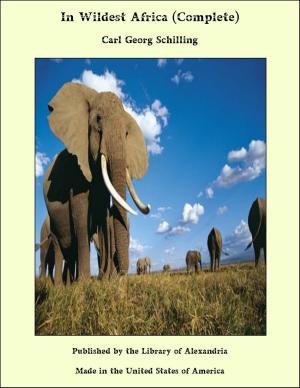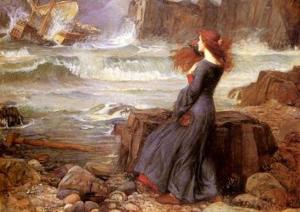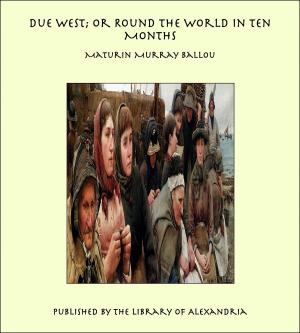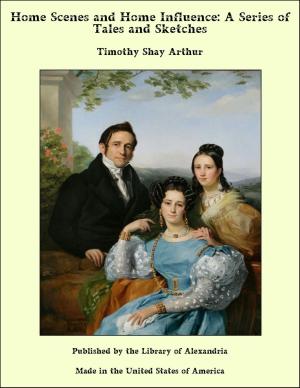The Three Miss Kings: An Australian Story
Nonfiction, Religion & Spirituality, New Age, History, Fiction & Literature| Author: | Ada Cambridge | ISBN: | 9781465605856 |
| Publisher: | Library of Alexandria | Publication: | March 8, 2015 |
| Imprint: | Language: | English |
| Author: | Ada Cambridge |
| ISBN: | 9781465605856 |
| Publisher: | Library of Alexandria |
| Publication: | March 8, 2015 |
| Imprint: | |
| Language: | English |
On the second of January, in the year 1880, three newly-orphaned sisters, finding themselves left to their own devices, with an income of exactly one hundred pounds a year a-piece, sat down to consult together as to the use they should make of their independence. The place where they sat was a grassy cliff overlooking a wide bay of the Southern Ocean—a lonely spot, whence no sign of human life was visible, except in the sail of a little fishing boat far away. The low sun, that blazed at the back of their heads, and threw their shadows and the shadow of every blade of grass into relief, touched that distant sail and made it shine like bridal satin; while a certain island rock, the home of sea-birds, blushed like a rose in the same necromantic light. As they sat, they could hear the waves breaking and seething on the sands and stones beneath them, but could only see the level plain of blue and purple water stretching from the toes of their boots to the indistinct horizon. That particular Friday was a terribly hot day for the colony, as weather records testify, but in this favoured spot it had been merely a little too warm for comfort, and, the sea-breeze coming up fresher and stronger as the sun went down, it was the perfection of an Australian summer evening at the hour of which I am writing. "What I want," said Patty King (Patty was the middle one), "is to make a dash—a straight-out plunge into the world, Elizabeth—no shilly-shallying and dawdling about, frittering our money away before we begin. Suppose we go to London—we shall have enough to cover our travelling expenses, and our income to start fair with—surely we could live anywhere on three hundred a year, in the greatest comfort—and take rooms near the British Museum?—or in South Kensington?—or suppose we go to one of those intellectual German towns, and study music and languages? What do you think, Nell? I am sure we could do it easily if we tried." "Oh," said Eleanor, the youngest of the trio, "I don't care so long as we go somewhere, and do something." "What do you think, Elizabeth?" pursued the enterprising Patty, alert and earnest. "Life is short, and there is so much for us to see and learn—all these years and years we have been out of it so utterly! Oh, I wonder how we have borne it! How havewe borne it—to hear about things and never to know or do them, like other people! Let us get into the thick of it at once, and recover lost time. Once in Europe, everything would be to our hand—everything would be possible. What do you think?" "My dear," said Elizabeth, with characteristic caution, "I think we are too young and ignorant to go so far afield just yet." "We are all over twenty-one," replied Patty quickly, "and though we have lived the lives of hermits, we are not more stupid than other people. We can speak French and German, and we are quite sharp enough to know when we are being cheated. We should travel in perfect safety, finding our way as we went along. And we do know something of those places—of Melbourne we know nothing."
On the second of January, in the year 1880, three newly-orphaned sisters, finding themselves left to their own devices, with an income of exactly one hundred pounds a year a-piece, sat down to consult together as to the use they should make of their independence. The place where they sat was a grassy cliff overlooking a wide bay of the Southern Ocean—a lonely spot, whence no sign of human life was visible, except in the sail of a little fishing boat far away. The low sun, that blazed at the back of their heads, and threw their shadows and the shadow of every blade of grass into relief, touched that distant sail and made it shine like bridal satin; while a certain island rock, the home of sea-birds, blushed like a rose in the same necromantic light. As they sat, they could hear the waves breaking and seething on the sands and stones beneath them, but could only see the level plain of blue and purple water stretching from the toes of their boots to the indistinct horizon. That particular Friday was a terribly hot day for the colony, as weather records testify, but in this favoured spot it had been merely a little too warm for comfort, and, the sea-breeze coming up fresher and stronger as the sun went down, it was the perfection of an Australian summer evening at the hour of which I am writing. "What I want," said Patty King (Patty was the middle one), "is to make a dash—a straight-out plunge into the world, Elizabeth—no shilly-shallying and dawdling about, frittering our money away before we begin. Suppose we go to London—we shall have enough to cover our travelling expenses, and our income to start fair with—surely we could live anywhere on three hundred a year, in the greatest comfort—and take rooms near the British Museum?—or in South Kensington?—or suppose we go to one of those intellectual German towns, and study music and languages? What do you think, Nell? I am sure we could do it easily if we tried." "Oh," said Eleanor, the youngest of the trio, "I don't care so long as we go somewhere, and do something." "What do you think, Elizabeth?" pursued the enterprising Patty, alert and earnest. "Life is short, and there is so much for us to see and learn—all these years and years we have been out of it so utterly! Oh, I wonder how we have borne it! How havewe borne it—to hear about things and never to know or do them, like other people! Let us get into the thick of it at once, and recover lost time. Once in Europe, everything would be to our hand—everything would be possible. What do you think?" "My dear," said Elizabeth, with characteristic caution, "I think we are too young and ignorant to go so far afield just yet." "We are all over twenty-one," replied Patty quickly, "and though we have lived the lives of hermits, we are not more stupid than other people. We can speak French and German, and we are quite sharp enough to know when we are being cheated. We should travel in perfect safety, finding our way as we went along. And we do know something of those places—of Melbourne we know nothing."


